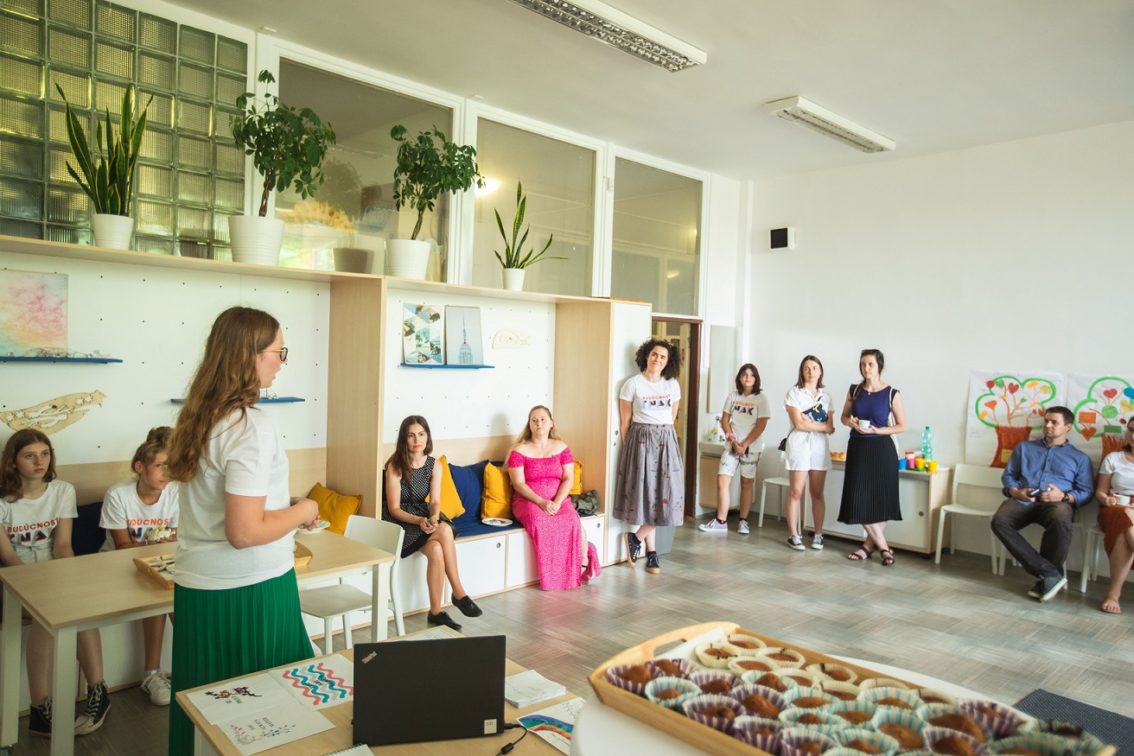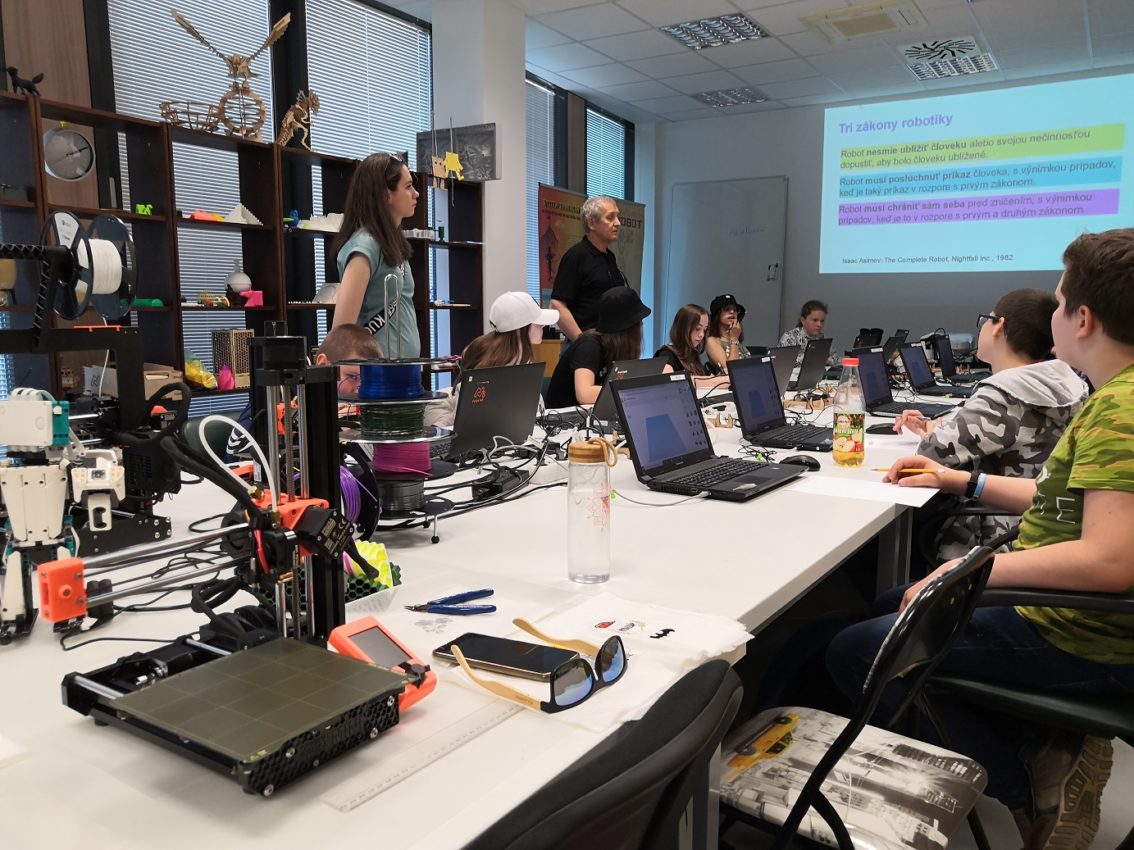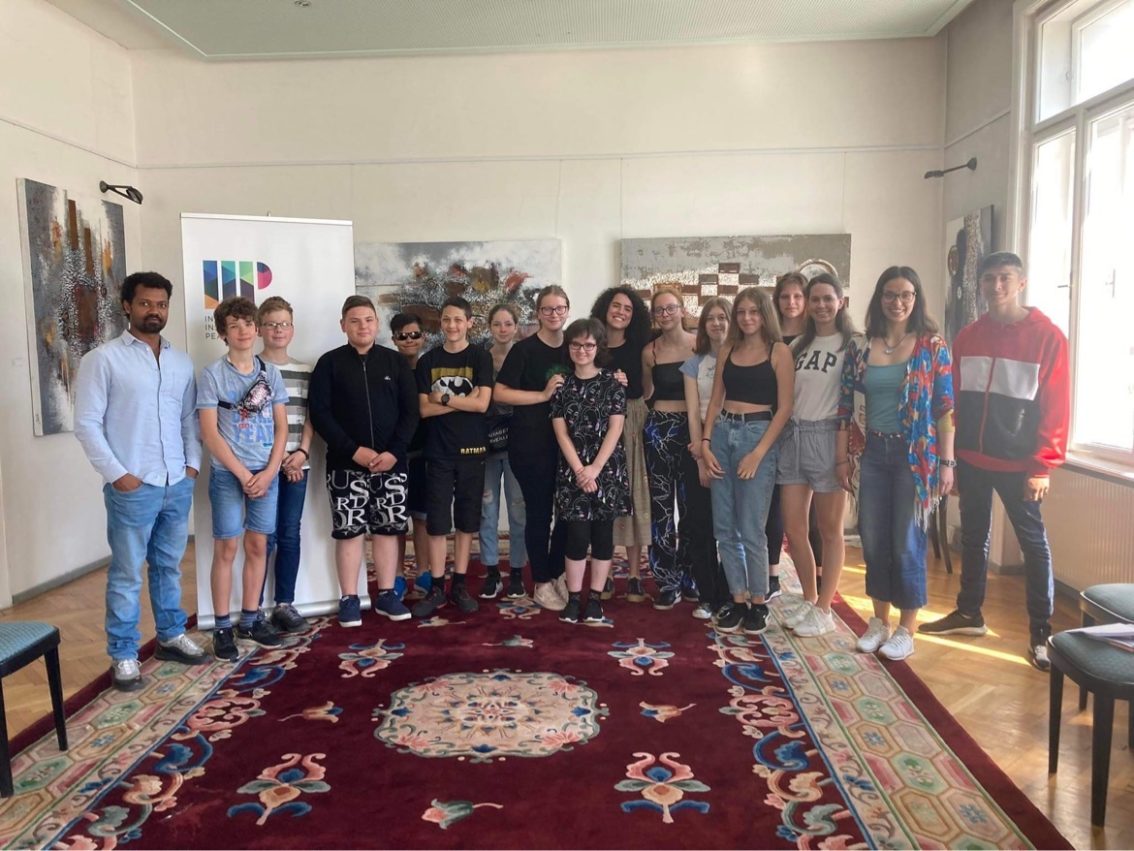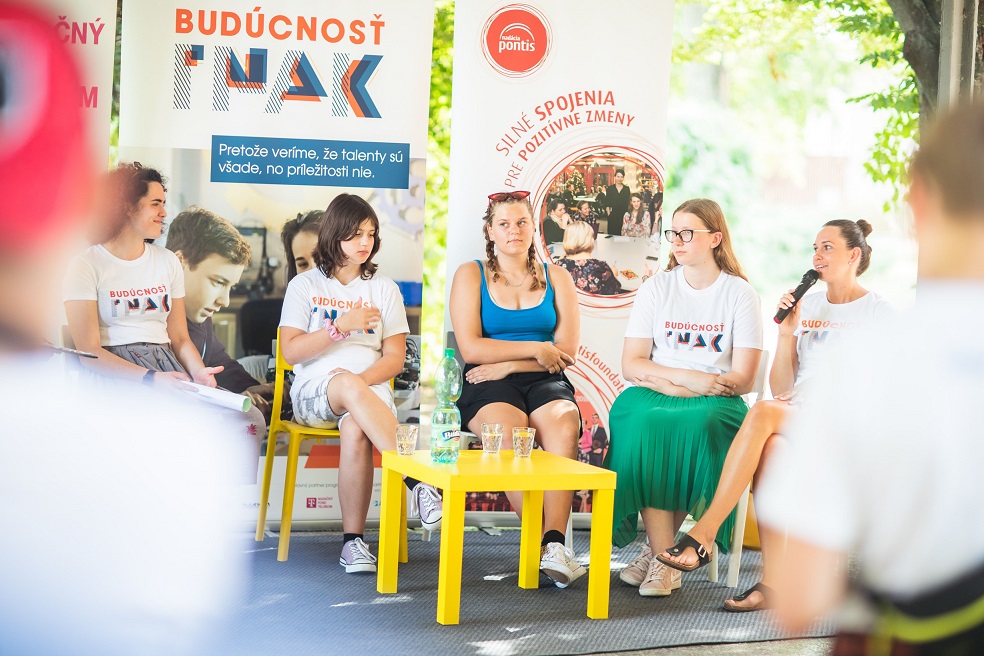Pupils invented their own social innovation and discussed the meaning of democracy in Vienna
The extra-curricular programme entitled Open Future has its first graduates.
The first 15 pupils from the Primary School in Maxim Gorki Street in Trnava realised that their future could look completely different than they had ever imagined. These are pilot participants in the Open Future programme, which was launched by the Pontis Foundation in cooperation with the school and the City of Trnava.
The club connecting primary school children from various backgrounds with top managers and experts from business and other fields was established in 2019 as the very first one in Slovakia in Trnava.
Creating a social innovation
Over three years, the teenagers attended more than 200 meetings including club activities with mentors, webinars, and trips with inspirational people. The goal was for them to recognise their potential, expand their digital and soft skills, and put the acquired experience to good use in the design of the project, the so-called social innovation. The projects aimed to solve a problem in children’s communities. The programme completed its first three-year cycle, the culmination of which was project presentations.
The children devised a platform where young people can feel accepted as they are, plan to build an electric car and create branded masks.

Stela, a programme graduate, is presenting her project. Photo: Marek Mucha
“The basis is a safe and attractive environment after school, thanks to which young people have a created space where they want to spend time and develop. We try to build their confidence so that they are not afraid to bring and develop ideas for solving problems, find their talents, find out what they are good at, and apply for better high schools than they imagined at the beginning of the programme,” explains Daniela Kellerová, the senior project manager of Open Future from the Pontis Foundation.
They learned about local projects and met the president
The central idea of the programme is that talents are everywhere, but opportunities to develop them are often lacking. Therefore, the participants of the programme had the opportunity to get to places that broadened their horizons and inspired them to think about their future in completely different dimensions. In the pilot year, they got to know several local Trnava public benefit projects, such as the reuse centre entitled Baterkáreň, the social enterprise AfB, and the youth organisation entitled Youth For Equity.
“The connection to the local community is extremely important. This is the basis of the relationship that the children in the programme form while working on their projects. They are inspired by local leaders in various ways. They also want to improve Trnava, its surroundings, and Slovakia. We intend to support the development of children’s active citizenship and their relationship with the community,” describes D. Kellerová.
They also visited the Profesia company, the FabLab creative workshop in the Science Park in Bratislava, and went on an excursion to the presidential palace, where they met the President of the Slovak Republic, Zuzana Čaputová.

A visit to the FabLab creative workshop in the Science Park in Bratislava. Photo: Pontis Foundation
In Vienna, the pupils visited the European branch of the International Institute for Peace. Researchers Marilya from Belarus, Luka from Serbia and Moges from Ethiopia discussed with the children:
- the importance of dialogue for maintaining peace and preventing conflicts,
- various political disputes that exist in the world and in the regions where the researchers come from,
- how democratic institutions can prevent these conflicts.

A visit to the International Peace Institute in Vienna. Photo: Pontis Foundation
“Thanks to the Open Future programme, our pupils experience a diverse content of activities that they do not usually encounter. They get the opportunity to look at the world through a different lens, gain new experiences, and have a different perspective on life and their future. Pupils have the opportunity to look at the world through a different lens, to gain new experiences,” says Beáta Krajčovičová, principal of the Maxim Gorki Primary School.
The success was achieved due to the openness of the school management and the city administration
The club would not have been created without the open environment at the Gorkij Primary School, the support of the City of Trnava and the financial support from Telekom. It is the combination of these sectors that has proven to be effective in creating an attractive and sustainable offer of informal education.
The development of the Open Future‘s unique methodology was supported by the programme’s main partner, the Telekom Foundation.


